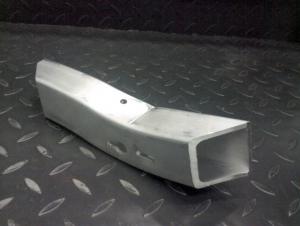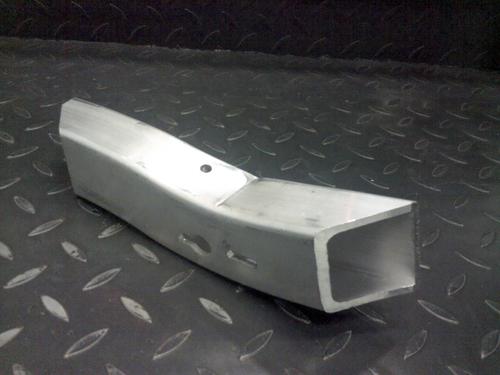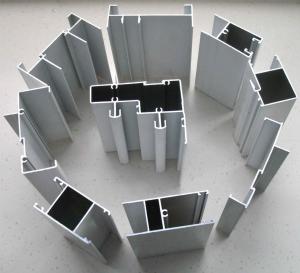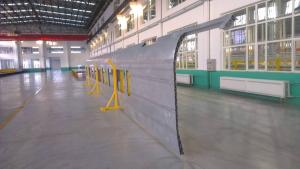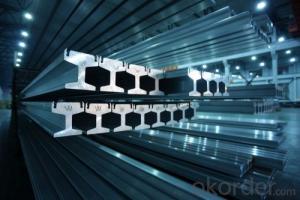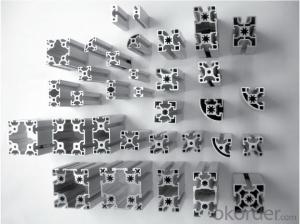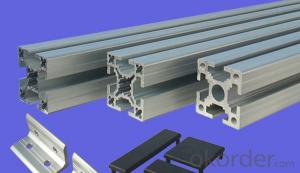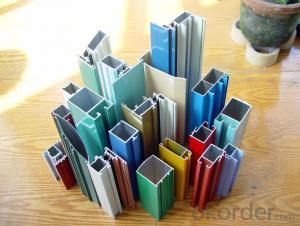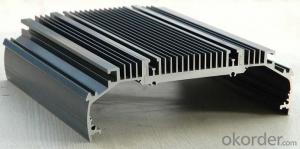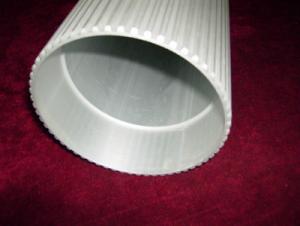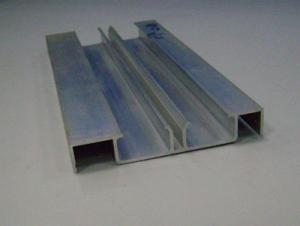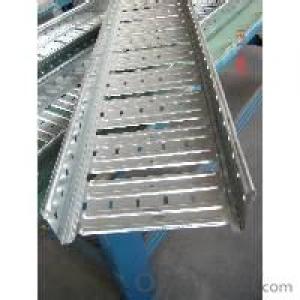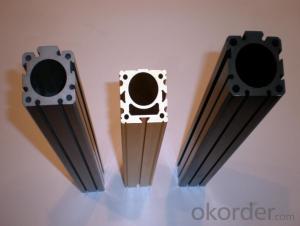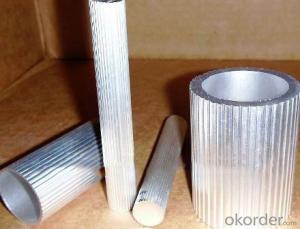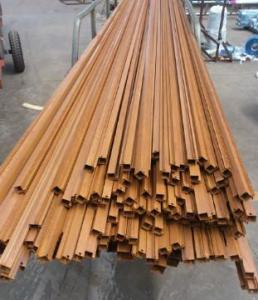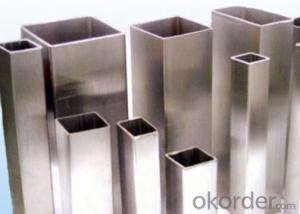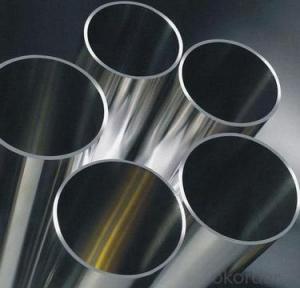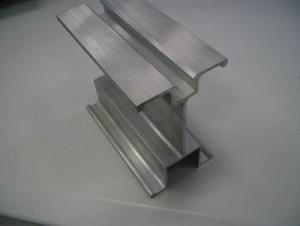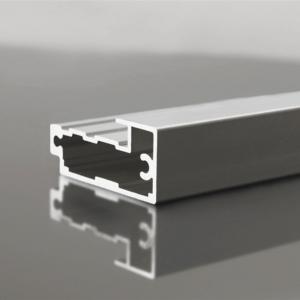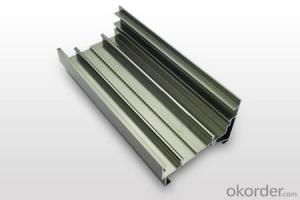Bosch Extruded Aluminum Profiles - Aluminium Profile
- Loading Port:
- China Main Port
- Payment Terms:
- TT OR LC
- Min Order Qty:
- -
- Supply Capability:
- -
OKorder Service Pledge
Quality Product, Order Online Tracking, Timely Delivery
OKorder Financial Service
Credit Rating, Credit Services, Credit Purchasing
You Might Also Like
Aluminium Profile
Our advantages:
1)we can provide"one- stop service from melting,extruding,surface treatment,machining,welding,assembling to mould design & building.
2)we have a good capacity of precise machining,cnc machining.
3)we can provide good quality with reasonable price.
Service:
Our advantages:
1)we can provide"one- stop service from melting,extruding,surface treatment,machining,welding,assembling to mould design & building.
2)we have a good capacity of precise machining,cnc machining.
3)we can provide good quality with reasonable price.
Products:
Description | Aluminium Profiles |
Alloy | Al 6063 T5 /T6 or 6061 or 6005 or as per customers' need |
Finish | Anodizing or powder coating with various colors |
Packing | Foam sheet,poly bag,plastic bag,carton |
Brand | YMJ |
Original place | China |
Certificate | ISO9001 |
Equipments:
7extruders,2 six meters long anodizing lines,1 twelve meters long anodizing line(including dyeing & electrolysis).1 powder coating line,5 melting lines,12 CNCs(including 2 machines which can mill 6.5m long profile),10 argon arc welding machines and multiple machines for cutting,drilling,punching,milling,shearing and bending,2 spectrum scanners,1 projective instument,1 extension test machine,1 mechanical property tester,1 Rohs tester and 1 metallurgical microscope.Service:
We're a well- established manufacture for aluminium products,we're confident we can give our customers complete satisfication.
We can provide good quality with reasonable price.- Q: This question asks about the various types of aluminum profiles that are specifically used for flooring applications.
- <p>Aluminum profiles for flooring are designed to provide structural support and stability to the flooring system. Common types include: 1. T-profiles, which are used as support beams and can be easily connected to create a grid structure. 2. U-profiles, often used as edge trims or for creating a border around the flooring area. 3. H-profiles, which are suitable for heavy-duty applications and provide high load-bearing capabilities. 4. L-profiles, used for creating corners or edges in flooring systems. 5. C-profiles, which are used for covering or hiding the edges of the floor. Each type offers different benefits and is chosen based on the specific requirements of the flooring project, such as load capacity, aesthetic considerations, and ease of installation.</p>
- Q: How do aluminum profiles compare to plastic profiles?
- Aluminum profiles and plastic profiles are commonly used in various industries for different applications. When comparing the two, there are several factors to consider. Strength and Durability: Aluminum profiles are generally stronger and more durable than plastic profiles. Aluminum has high tensile strength, allowing it to withstand heavy loads and resist deformation. Plastic profiles, on the other hand, are more prone to cracking or breaking under excessive stress. Weight: Aluminum profiles are heavier than plastic profiles. This can be an advantage or disadvantage depending on the specific application. Aluminum's weight can provide stability and strength, while plastic's lightweight nature can make it easier to handle and install. Corrosion Resistance: Aluminum profiles have excellent corrosion resistance properties. They can withstand exposure to various environmental conditions, making them suitable for outdoor applications. Plastic profiles, however, are not as resistant to certain chemicals or UV radiation, which can cause degradation over time. Flexibility and Design: Plastic profiles offer more design flexibility compared to aluminum profiles. Plastic can be easily molded into complex shapes and customized according to specific requirements. Aluminum, although less flexible, can still be shaped or extruded into different profiles with some limitations. Thermal and Electrical Conductivity: Aluminum profiles have superior thermal conductivity, allowing them to dissipate heat more effectively. They are often used in applications where heat dissipation is critical, such as electronics or heat sinks. Plastic profiles have lower thermal conductivity and are less suitable for such applications. Cost: Plastic profiles are generally more cost-effective than aluminum profiles. The manufacturing process for plastic profiles is simpler and cheaper, resulting in lower production costs. Aluminum profiles, on the other hand, require more advanced manufacturing techniques and additional finishing processes, making them relatively more expensive. In conclusion, the choice between aluminum and plastic profiles depends on the specific requirements of the application. Aluminum profiles offer superior strength, durability, and corrosion resistance, making them suitable for heavy-duty or outdoor applications. Plastic profiles, on the other hand, provide more design flexibility and cost-effectiveness, making them ideal for lightweight or customized applications.
- Q: Are aluminum profiles compatible with glass?
- Yes, aluminum profiles are compatible with glass. Aluminum profiles are commonly used as framing systems for glass panels in various applications such as windows, doors, curtain walls, and partitions. The compatibility arises from the fact that aluminum is lightweight, durable, and corrosion-resistant, making it an ideal material for holding and supporting glass panels. By utilizing various profile designs, aluminum frames can securely hold different types and thicknesses of glass, providing structural stability and aesthetic appeal to the overall construction. Additionally, aluminum profiles can be customized and engineered to accommodate specific glass installation requirements, ensuring a perfect fit and compatibility between the two materials.
- Q: Can aluminum profiles be used in medical equipment manufacturing?
- Yes, aluminum profiles can be used in medical equipment manufacturing. Aluminum is a lightweight and durable material that offers various advantages for medical applications. It is corrosion-resistant, which is crucial in medical settings where equipment is often exposed to chemicals and sterilization processes. Aluminum profiles also provide excellent thermal conductivity, allowing for efficient heat dissipation in medical devices. Furthermore, aluminum profiles can be easily customized to meet specific design requirements, allowing for the creation of complex and precise medical equipment. They can be machined, welded, and formed into various shapes and sizes, making them suitable for a wide range of medical applications, such as surgical instruments, imaging equipment, patient beds, and wheelchairs. In addition to its mechanical properties, aluminum is environmentally friendly and recyclable, aligning with the growing sustainability requirements in the medical industry. It is non-toxic and does not release harmful substances, ensuring the safety of patients and healthcare professionals. Overall, aluminum profiles offer numerous benefits for medical equipment manufacturing, including durability, corrosion resistance, thermal conductivity, customization options, and sustainability.
- Q: Can aluminum profiles be utilized as materials for constructing roofs?
- <p>Yes, aluminum profiles can be used for roofing materials. They are known for their durability, corrosion resistance, and lightweight properties, making them an excellent choice for roofing applications. Aluminum profiles can be shaped and joined to create a strong and weather-resistant roofing system. They are also easy to install and maintain, and can be recycled, contributing to their environmental sustainability.</p>
- Q: What are the applications of aluminum profiles?
- Due to their unique characteristics and properties, aluminum profiles have a wide range of applications in various industries. Some of the main uses of aluminum profiles are as follows: 1. In the construction industry, aluminum profiles are extensively employed for windows, doors, curtain walls, and structural components. Their excellent strength, durability, and corrosion resistance make them ideal for building purposes. 2. The automotive industry utilizes aluminum profiles to manufacture lightweight and fuel-efficient vehicles. They are used in the production of car frames, engine mounts, heat exchangers, and other structural components. 3. The aerospace industry relies on aluminum profiles for their high strength-to-weight ratio. They are used in the construction of aircraft frames, wings, fuselage, and other critical components. 4. Aluminum profiles are widely used in electrical and electronics applications. Their excellent thermal conductivity and electrical insulation properties make them suitable for manufacturing heat sinks, LED lighting fixtures, electrical enclosures, and electronic device housings. 5. The furniture industry is increasingly incorporating aluminum profiles to create lightweight and stylish furniture pieces. They are used in the production of chairs, tables, cabinets, and shelving systems, providing a modern and aesthetic appeal. 6. Aluminum profiles play a significant role in the manufacturing of industrial machinery and equipment. They are utilized in the construction of conveyor systems, assembly line structures, machine frames, and guarding systems due to their lightweight, durability, and ease of fabrication. 7. In the marine industry, aluminum profiles are commonly used for their corrosion resistance and lightweight properties. They are utilized in the construction of boat frames, masts, hulls, and other marine structures. 8. Aluminum profiles also find applications in renewable energy systems such as solar panels and wind turbines. They are used in the manufacturing of solar panel frames, wind turbine supports, and mounting structures due to their lightweight nature and corrosion resistance. Overall, aluminum profiles offer a versatile and cost-effective solution for various industries, meeting their specific requirements for strength, durability, lightweight, and corrosion resistance.
- Q: Is it possible to recycle aluminum profiles and use them again in construction?
- <p>Yes, aluminum profiles can be recycled and reused in building construction. Aluminum is highly recyclable, and the recycling process requires significantly less energy compared to producing new aluminum. Recycled aluminum maintains its strength and properties, making it suitable for various construction applications. This practice not only conserves resources but also reduces waste and environmental impact.</p>
- Q: Can aluminum profiles be used for soundproofing or acoustic applications?
- Indeed, soundproofing or acoustic applications can make use of aluminum profiles. Aluminum is renowned for its remarkable ability to dampen sound, rendering it a perfect material choice for constructing sound barriers or enclosures. Its robust structural properties and capacity to either absorb or reflect sound waves effectively diminish noise transmission. Moreover, aluminum profiles can be readily tailored and manufactured into various forms and dimensions to cater to specific acoustic needs. Whether employed in walls, partitions, doors, or enclosures, aluminum profiles play a significant role in reducing sound transfer and creating a more tranquil and pleasant atmosphere.
- Q: What are the different sizes and dimensions of aluminum profiles?
- The different sizes and dimensions of aluminum profiles can vary greatly depending on the specific application and manufacturer. They can range from small, narrow profiles with dimensions of a few millimeters to larger, wider profiles with dimensions of several inches or more. The length of the profiles can also vary, typically ranging from a few feet to several meters.
- Q: How are aluminum profiles insulated?
- Aluminum profiles are typically insulated using a thermal break system. This involves placing a non-conductive material, such as polyamide or polyurethane, between the inner and outer sections of the aluminum frame. This insulation helps to reduce heat transfer and improve energy efficiency in buildings.
Send your message to us
Bosch Extruded Aluminum Profiles - Aluminium Profile
- Loading Port:
- China Main Port
- Payment Terms:
- TT OR LC
- Min Order Qty:
- -
- Supply Capability:
- -
OKorder Service Pledge
Quality Product, Order Online Tracking, Timely Delivery
OKorder Financial Service
Credit Rating, Credit Services, Credit Purchasing
Similar products
Hot products
Hot Searches
Related keywords
